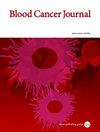Transposable elements as genome regulators in normal and malignant haematopoiesis.
IF 12.9
1区 医学
Q1 HEMATOLOGY
引用次数: 0
Abstract
Transposable elements (TEs) constitute over half of the human genome and have played a profound role in genome evolution. While most TEs have lost the ability to transpose, many retain functional elements that serve as drivers of genome innovation, including the emergence of novel genes and regulatory elements. Recent advances in experimental and bioinformatic methods have provided new insights into their roles in human biology, both in health and disease. In this review, we discuss the multifaceted roles of TEs in haematopoiesis, highlighting their contributions to both normal and pathological contexts. TEs influence gene regulation by reshaping gene-regulatory networks, modulating transcriptional activity, and creating novel regulatory elements. These activities play key roles in maintaining normal haematopoietic processes and supporting cellular regeneration. However, in haematological malignancies, TE reactivation can disrupt genomic integrity, induce structural variations, and dysregulate transcriptional programmes, thereby driving oncogenesis. By examining the impact of TE activity on genome regulation and variation, we highlight their pivotal roles in both normal haematopoietic processes and haematological cancers.转座因子在正常和恶性造血中的基因组调控作用。
转座因子(te)占人类基因组的一半以上,在基因组进化中发挥着重要作用。虽然大多数te已经失去了转座的能力,但许多te保留了作为基因组创新驱动因素的功能元件,包括新基因和调控元件的出现。实验和生物信息学方法的最新进展为它们在人类生物学中健康和疾病方面的作用提供了新的见解。在这篇综述中,我们讨论了TEs在造血中的多方面作用,强调了它们对正常和病理环境的贡献。te通过重塑基因调控网络、调节转录活性和创造新的调控元件来影响基因调控。这些活动在维持正常的造血过程和支持细胞再生中起着关键作用。然而,在血液恶性肿瘤中,TE再激活会破坏基因组完整性,诱导结构变异,并调节转录程序,从而推动肿瘤的发生。通过研究TE活性对基因组调控和变异的影响,我们强调了它们在正常造血过程和血液学癌症中的关键作用。
本文章由计算机程序翻译,如有差异,请以英文原文为准。
求助全文
约1分钟内获得全文
求助全文
来源期刊

Blood Cancer Journal
ONCOLOGY-
CiteScore
16.70
自引率
2.30%
发文量
153
审稿时长
>12 weeks
期刊介绍:
Blood Cancer Journal is dedicated to publishing high-quality articles related to hematologic malignancies and related disorders. The journal welcomes submissions of original research, reviews, guidelines, and letters that are deemed to have a significant impact in the field. While the journal covers a wide range of topics, it particularly focuses on areas such as:
Preclinical studies of new compounds, especially those that provide mechanistic insights
Clinical trials and observations
Reviews related to new drugs and current management of hematologic malignancies
Novel observations related to new mutations, molecular pathways, and tumor genomics
Blood Cancer Journal offers a forum for expedited publication of novel observations regarding new mutations or altered pathways.
 求助内容:
求助内容: 应助结果提醒方式:
应助结果提醒方式:


